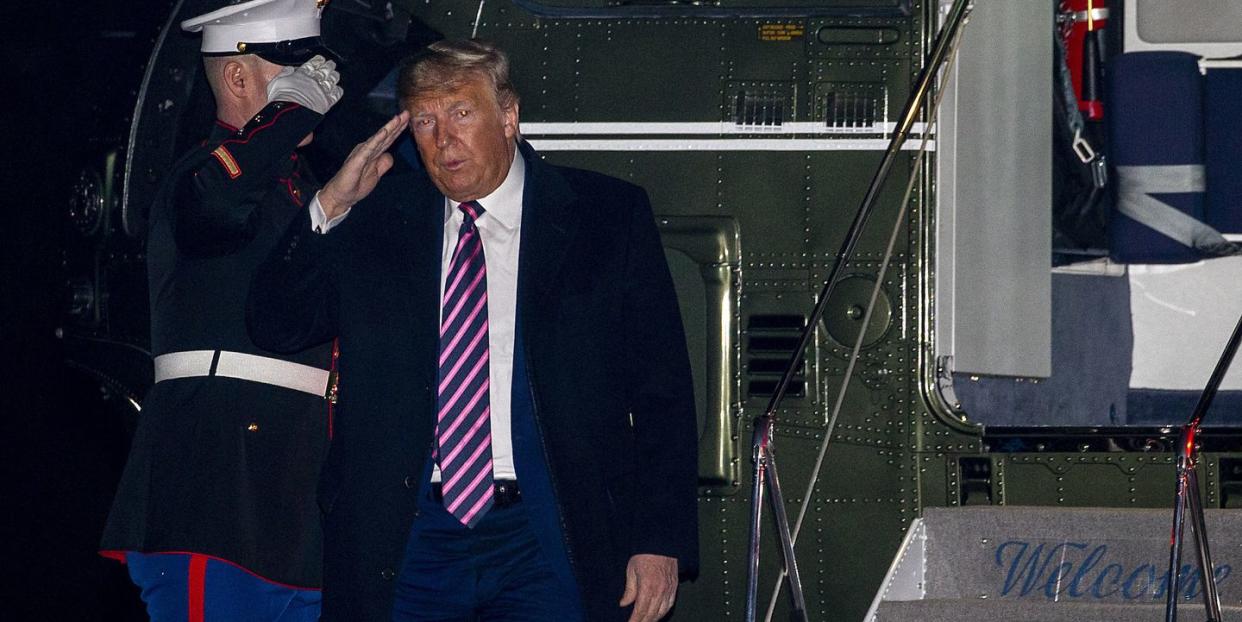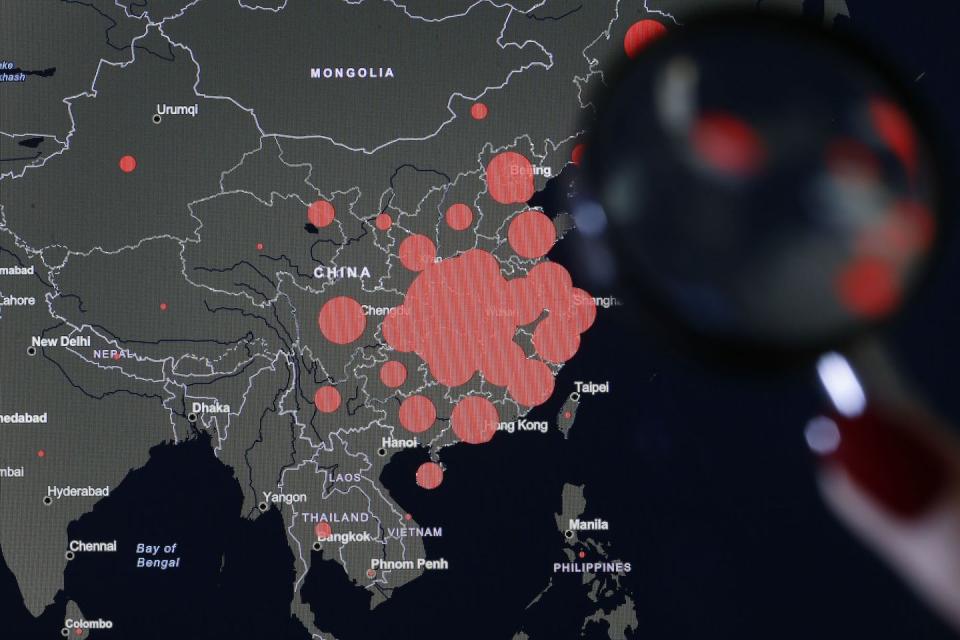Coronavirus Might Be the Rare Crisis Trump Has to Deal With That's Not of His Own Making

A constant question in the Trump Era: what happens when he runs into a crisis that's not of his own making? His presidency's setbacks have often been self-generated—the "zero-tolerance" policy that led inevitably to separating kids from the parents at the border was a wholly unnecessary choice—and there's only rarely been incoming that's really beyond his control. Even the Iran debacle, which was stemmed in geopolitical currents that long precede Donald Trump, was also rooted in his reactionary shredding of the nuclear agreement—which Iran was abiding by at the time—and his subsequent decision to assassinate the nation's second most important figure.
The best examples of truly external crises are probably still hurricanes Harvey and Maria, the latter of which in particular demonstrated the drawbacks of installing a racist game-show host as the leader of your country. But a new external threat has emerged in the form of COVID-19, popularly known as Coronavirus even though it's actually just a new strain in the Coronavirus family. The Chinese government reports more than 75,000 cases of the disease and 2,200 deaths in that country, though there are questions about how reliable the authoritarian regime's numbers are. The World Health Organization puts the global numbers at 79,400 cases and 2,600 deaths, reports CNBC, while the virus has emerged in Italy via 220 cases. There are 830 cases in South Korea, and 61 in Iran.
"The localized outbreaks outside of China are fueling concerns among infectious disease experts and scientists that the virus is spreading too quickly and may be past the point of containment," says CNBC. "Health officials are warning the public to prepare for a potential global pandemic."

Meanwhile, the American president's response has mostly been weird macho praise for China's president-for-life and, more disturbingly, his repeated claims that "...as the weather starts to warm...the virus hopefully becomes weaker." This is not the first time the President of the United States has mused that the virus will simply go away when spring has sprung, which actual experts in the field have described as "wishful thinking." It could be true, or it might not! No one actually knows, which makes it irresponsible for the president to say it. If you're interested, the high Monday in Wuhan, China—where the outbreak began—was 75 degrees. It'll be 77 tomorrow. Maybe that will fix it.
There are longstanding concerns—including among the president's own advisers—that his "soft touch" towards China here could be dangerous. Not only has the Chinese government been constantly and reflexively dishonest about the outbreak there, but the situation has illustrated the potential peril of having American supply chains so entangled with China. This is not really the time for Trump's vaunted hardline China stance to go soft, but in public, at least, he seems to readily accept Xi Jinping's word on all this. Maybe he's got one eye on his trade war, which he sought to de-escalate in this election year with a "Phase One" agreement.
Stateside, there are a number of factors in play that are not exactly cause for celebration. First and foremost, there is the basic fact that Trump has steadily purged dissenters and career civil-servants from the government, replacing expertise and independence with loyalism—or, in many cases, with nothing at all. The Department of Homeland Security is dangerously understaffed, and FEMA is missing officials in key positions.
On the positive side, his administration has created a $70 million Emergency Reserve Fund at USAID to respond to outbreaks of contagious disease and sought $50 million for the CDC’s Infectious Diseases Rapid Response Reserve Fund. But Trump has for years now attempted to cut funding to the Centers for Disease Control, including in his 2021 budget, which, according to the Verge, "cuts $25 million from the Office of Public Health Preparedness and Response and $18 million from the Hospital Preparedness Program. The administration also asked for over $85 million in cuts to the Emerging and Zoonotic Infectious Diseases program." Some experts believe these institutions are already underfunded.

And then there's the general Republican effort to make sure as many Americans as possible are uninsured or underinsured. After the various Repeal and Go Fuck Yourself bills targeting Obamacare failed in Congress, the party moved towards a legal assault on the Affordable Care Act. Republican state attorneys general across the country signed onto a lawsuit that seeks to completely dismantle the law and throw 20 million people off their insurance coverage. When Trump took office, he reversed the federal government's position on the lawsuit to side with the state AGs.
Even in the meantime, however, Americans who are concerned about medical costs because of their private insurance plans—which many Democratic candidates are eager to tell us everyone loves—may not seek out the proper treatment if they have symptoms. The pandemic pitfalls of the rickety American system are already showing: a Miami man who visited China for work came back with flu-like symptoms and went to a doctor to get tested. The results came back negative, but he still might owe $1,400. This is not an expense most Americans can afford.
If the WHO's worst predictions come true, the United States of America may be faced with controlling a pandemic while the national leader, an expert in no discernible field outside of reactionary trolling and surrounded by loyalists and sycophants who know truthful dissent means defenestration, devotes at least as much energy to further dismantling an already broken healthcare system as he does to public health and the general welfare. Again: his regime has very rarely been tested by any truly external crises. We must hope we can make it another year before it is.
You Might Also Like


